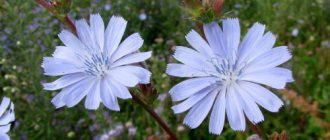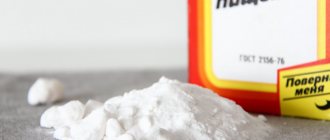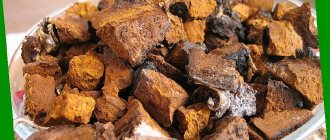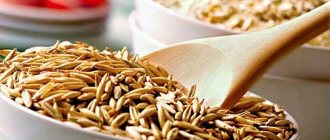Herbalists often use in their practice a variety of St. John's wort called St. John's wort. It is a versatile medicinal herb that can be used to treat many ailments. This gift of nature can be used as part of complex therapy for pancreatic diseases such as chronic pancreatitis.
We immediately warn our readers that St. John's wort is effective only when prescribed correctly, since this medicinal herb can have a wide range of effects on the body as a whole. And if used incorrectly, it can negatively affect health in the case of certain concomitant pathologies.
In this article we will introduce you to the main properties, application features, indications and contraindications for the use of St. John's wort for pancreatitis. In addition, you can learn about herbal preparations and ready-made medicines based on this medicinal herb sold in pharmacies.
How does St. John's wort affect the body during pancreatitis?
St. John's wort contains substances that can have a beneficial effect on the functioning of the digestive tract. Our ancestors also used it to treat inflammatory diseases of the stomach, biliary organs and intestines. For these ailments, this medicinal herb has the following effects on our body:
- Helps eliminate inflammation;
- Improves appetite;
- Helps eliminate pathogenic microorganisms;
- Provides faster regeneration of damaged tissues;
- Helps normalize the psycho-emotional background and relieve depression;
- Eliminates cravings for drinking alcohol.
In the treatment of chronic pancreatitis, it is these healing properties of St. John's wort that contribute to faster recovery and harmonize the general well-being of the patient. That is why this medicinal herb can be used not only to treat this form of pancreatitis, but also to prevent its exacerbation.
The healing properties of St. John's wort for chronic pancreatitis:
- Elimination of increased excitability of the psycho-emotional background and depressive state;
- Normalization of the coordinated functioning of the remaining digestive organs.
All of the above-described properties of St. John's wort can become the reason for prescribing this drug as part of complex therapy aimed at treating and preventing this disease.
Therapeutic effects of St. John's wort on the body and its composition
St. John's wort is enriched with valuable nutritional and medicinal components, including:
- Vitamins A, B, C, PP, E.
- Essential oil.
- Carotene.
- Tannins.
- Bitterness.
- Alkaloids.
- Organic and inorganic acids.
- Cetyl alcohol.
- Flavonoids.
- Phytoncides.
- Resins.
- Saponins.
Thanks to this composition, the plant has a wide range of medicinal capabilities: analgesic, anti-inflammatory, antibacterial, sedative, diuretic and choleretic, wound healing, astringent. In addition, St. John's wort:
- Improves appetite.
- Normalizes digestion and secretion of pancreatic enzymes.
- Helps remove worms from the body.
- Normalizes the psycho-emotional state in case of nervous disorders, depression, stress.
- Strengthens vascular walls.
- Normalizes heart rhythm.
- Protects the body from the negative effects of free radicals, preventing the development of cancer.
- Supports vision.
- Promotes the restoration of cartilage tissue and ligaments.
- Improves skin elasticity and tone.
- Activates hair growth, strengthens hair follicles.
- Helps get rid of wrinkles, acne, pustules, cracks in the skin.
Remedies from the plant are widely used to treat diseases of the digestive system, genitourinary system, skin ailments, to normalize blood pressure and the functioning of the heart and nervous system, for heartburn, cholelithiasis, and hepatitis.
Contraindications
St. John's wort may be contraindicated in the following diseases and conditions:
- During pregnancy and breastfeeding;
- Tendency to hypertension;
- Hypertrophic cirrhosis of the liver;
- Nephritis;
- Thrombophlebitis;
- Condition after organ transplantation;
- Fever;
- Diseases of the veins and arteries, accompanied by narrowing of the lumen of blood vessels;
- Pathologies of the optic nerve;
- Tendency to bleeding caused by blood thinning;
- Tendency to constipation;
- The need to be in direct sunlight.
Preparations based on St. John's wort are prescribed with caution if it is necessary to take the following medications:
- Oral contraceptives and some hormonal preparations based on sex hormones;
- Antibiotics;
- Medicines for the treatment of HIV infection;
- Blood thinners;
- Antidepressants;
- Amino acids: tryptophan and tyrosine;
- Amphetamines;
- Inhalers for the treatment of asthma;
- Preparations for general anesthesia.
Where can I get St. John's wort herb to treat pancreatitis?
St. John's wort herb, prepared independently or purchased at a pharmacy, can be used for treatment. In addition, you can use ready-made preparations based on this healing herb in tablet form.
St. John's wort blooms in the summer months and the grass begins to be collected when all the flowers open until the first still immature seed pods form. This medicinal plant can be found near forest plantations and on forest edges, on rocky soils or in the steppes far from chemical plants or roads and railways.
To cut the stems, use a sickle or sharp knife. The tops of the plant are collected into the preparation, cutting them off so that their height does not exceed 30 cm. When cutting St. John's wort, you should carefully hold the stem so that its root does not pull out of the ground, since such actions can lead to the extermination of this medicinal plant. Immediately after collection, it is necessary to begin the process of drying St. John's wort, since this medicinal plant can quickly lose its healing properties.
For drying, prepare a dry, well-ventilated place (for example, an attic or a shaded, fenced and windless corner of the garden). The stems of the plant should be covered with a thin and even layer (5 to 7 cm in height). Next, they need to be turned over periodically for faster drying. As a rule, the stems dry out after 4-5 days.
To speed up the drying process, you can use special electrical devices. When drying in this way, it is necessary to maintain a certain temperature regime, which should not exceed 40 degrees. As a rule, with this method of preparing St. John's wort for storage, the plant dries out within two days.
After drying, the grass should be chopped and placed in paper bags or bags made of natural fabric (linen or cotton). St. John's wort should be stored in a dark, cool and well-ventilated place. For example, in a dry shed or in a spacious closet. The shelf life of such prepared medicinal raw materials is 3 years.
How to prepare infusion and decoction of St. John's wort?
To prepare St. John's wort infusion:
- Take one tablespoon of dry St. John's wort herb and pour 220 ml of boiling water.
- Cover the container with the future infusion with a lid and a warm towel and leave for half an hour.
- Strain the infusion and take 50 ml glass three times a day 30-40 minutes before meals.
- The infusion should be stored in the refrigerator, but no more than 2 days.
To prepare a decoction of St. John's wort:
- Take one tablespoon of dry St. John's wort herb and pour 220 ml of boiling water.
- Bring the future broth to a boil and simmer over low heat for 1 minute.
- Cover the container with the broth with a lid and a warm towel and leave for half an hour.
- Strain the broth and take 100 ml three times a day 30-40 minutes before meals.
- The broth should be stored in the refrigerator, but no more than 2 days.
There is probably no such disease that they would not try to treat with St. John's wort. People say: “Just as you can’t bake bread without flour, you can’t cure a person without St. John’s wort.” This plant has many names - St. John's wort, St. John's wort, St. John's wort, St. John's wort, St. John's wort, St. John's wort, St. John's wort, St. John's wort, field pharmacy.
The generic name “Nurericum” is derived from two Greek words: “huro” - under and “ereike” - heather; it turns out “growing under heather”, or “resembling heather”. The name “perforatum” - perforated or perforated - the plant received because of the small transparent containers scattered throughout the leaf blade.
The most famous name of the herb “St. John’s wort” comes, according to some assumptions, from the Kazakh “dzherabai”, meaning “healer of wounds”, according to others - due to the ability of St. John’s wort to cause disease in sheep. Moreover, not all animals fed with St. John's wort get sick, but only white or variegated ones, and only on a bright sunny day. Swellings form on the head of such animals, growing into ulcers, and severe itching appears. But, as soon as a sick sheep moves into the shade, after a while all painful phenomena disappear. It turns out that St. John's wort contains substances (hypericin and other condensed anthracene-derivative glycosides) that increase skin sensitivity to ultraviolet rays.
In the old days, St. John's wort was considered a magical plant. In rural areas, when stuffing children's mattresses, they always added St. John's wort to the straw so that the smell of this plant would protect the child from fright in his sleep. St. John's wort was a favorite remedy of Paracelsus, used against spirits hostile to man. He wrote: “The veins on its leaves are signatures. If they are pierced, this means that the plant drives away all the ghosts around the person. ... Nurericum (St. John's wort) is an almost universal medicine.” There is also a mention of St. John's wort in Ayurveda: “Its nature is hot and dry in the second degree. St. John's wort has a cleansing, drying and resolving effect.” St. John's wort was considered a medicinal plant in both Ancient Greece and Rome. Hippocrates, Dioscorides and Pliny the Elder wrote about him. Avicenna recommended “drinking it for forty days in a row to cure inflammation of the sciatic nerve; and take the seed internally to stop the fever.” In Kievan Rus, St. John's wort was considered a herb for 99 diseases. By order of Tsar Michael, St. John's wort was collected in Siberia, dried, ground into flour and sent to Moscow “by the pound for every year.”
St. John's wort is a perennial herbaceous plant of the St. John's wort family, 30–100 cm high. The stems are smooth, round, with two lateral ribs, branched at the top. The rhizome of St. John's wort is thin, highly branched. Leaves with numerous translucent light and black glands. On examination they appear to be punctured. St. John's wort blooms from June to August. The flowers are collected in an inflorescence. The petals are bright yellow. The fruit of St. John's wort is a three-lobed capsule. The seeds are small, oblong, brown. St. John's wort is distributed throughout almost the entire European part of Russia, the Caucasus, Western and Eastern Siberia, as well as in the mountains of Central Asia. It grows in dry meadows, hills, clearings and forest edges, in sparse forests and among bushes. It is found as a weed near roads and along the edges of fields.
The name “St. John's wort” is explained by the small black dots that cover the flowers and leaves. We are not talking about holes, but about small glands filled with a red dye - hypericin. When collected independently, this is a sure sign of identification of St. John's wort: if you rub a flower or bud between your thumb and forefinger, they will turn dark red. Hypericin is especially necessary for the treatment of depression, stress, and nervous breakdowns; it does not have any side effects on the central nervous system.
St. John's wort herb is harvested in the flowering phase of the plant (before the appearance of unripe fruits), cutting off the leafy tops without the rough bases of the stems.
The main active ingredients of the herb St. John's wort are condensed anthracene derivatives - hypericin and pseudohypericin. Their number is about 0.5%. Hypericin and pseudohypericin are accompanied by resinous substances, the content of which reaches up to 17%. St. John's wort herb contains flavonoid glycosides of the flavonol group: rutin, quercitrin, hyperoside, myricetin, leukoanthocyanidins and anthocyanins (5–6%). The hyperoside content in the grass reaches 1.0–1.2%. Along with anthracene and flavonol derivatives, St. John's wort contains tannins (up to 10%), essential oil (0.2–0.3%), saponins, ascorbic acid, carotene (up to 55 mg/100 g).
St. John's wort preparations have astringent, anti-inflammatory, antiseptic and tissue regeneration stimulating properties. Medicinal preparations from St. John's wort have a beneficial effect on the functional state of the central and autonomic nervous system. Bioflavonoids contained in St. John's wort bind to benzodiazepine receptors and have a sedative effect. The drugs improve mood, increase mental and physical performance, and normalize sleep. The antidepressant effect is due to the ability to inhibit the reuptake of serotonin, norepinephrine and dopamine; St. John's wort preparations do not have contraindications and side effects, which become constant companions of chemical antidepressants.
Infusions, tinctures and extracts are obtained from the herb St. John's wort. The drugs Novoimanin, Negrustin, St. John's wort, Gelarium Hypericum, Deprim, Deprim forte are registered on the market. St. John's wort herb is included in the herbal mixtures “Brusniver” and “Brusniver-T”, “Arfazetin”, “Mirfazetin”, etc.
St. John's wort infusion (10 g per 200 ml) is used as an astringent, disinfectant and anti-inflammatory agent orally for diseases of the gastrointestinal tract, acute and chronic colitis of non-bacterial origin. Take 100 ml orally 3 times a day before meals for 1–2 months.
St. John's wort tincture and the drug Novoimanin have an antimicrobial and anti-inflammatory effect. Inhibits the growth of predominantly gram-positive microorganisms, such as Streptococcus pyogenes and Streptococcus agalactiae, penicillin-resistant Staphylococcus aureus and methicillin-resistant Staphylococcus aureus. Indicated for abscesses, phlegmon, infected wounds, burns (I–III degree), trophic ulcers, pyoderma, mastitis, rhinitis, pharyngitis, sinusitis.
St. John's wort tincture in 40% alcohol (1:5) is used as an astringent and anti-inflammatory agent in dentistry (40–50 drops 3–4 times a day) and for rinsing (30–40 drops in half a glass of water).
Novoimanin is used externally, in the form of a solution for wet dressings, rinsing cavities, electrophoresis, inhalations and drops (external auditory and nasal canal); Before use, the alcohol solution is diluted 1: 5–10–25–100 with sterile distilled water, a sterile 10% dextrose solution or a 0.25% procaine solution. Solutions obtained by diluting a 1% alcohol solution are suitable for use during the day. During the treatment period, care must be taken when driving vehicles and engaging in potentially hazardous activities that require increased concentration and speed of psychomotor reactions.
Medicines based on St. John's wort concentrate are indicated for the treatment of mild and moderate depression. They have antidepressant, anxiolytic and sedative effects. Negrustin is taken 1 capsule 1-2 times a day or 1 ml of oral solution 3 times a day (undiluted or with a small amount of water with meals) for 6-8 weeks. St. John's wort is prescribed 1-2 tablets 3 times a day for at least 3 weeks, it is possible to increase the duration of treatment to 3 months (no more). Gelarium Hypericum is used 1 tablet 3 times a day for at least 4 weeks, Deprim - 1 tablet 3 times a day for 4-6 weeks, Deprim Forte - 1 capsule 1-2 times a day for 4-6 weeks
For all its popularity, St. John's wort is far from harmless. It should not be used for a long time in case of arterial hypertension and severe depression. It is contraindicated in childhood (under 12 years), during pregnancy and lactation. Even in healthy people, drinking large amounts of strongly brewed St. John's wort tea can cause symptoms of acute gastritis (nausea, pain in the epigastric region, dry oral mucosa, diarrhea or constipation), and in those suffering from hyperacid gastritis or gastric ulcer, severe overdose may occur. spasms and pain in the intestines. Amino acids, trictophan and tyrosine, amphetamines, monoamine oxidase inhibitors, antidepressants should not be used simultaneously with St. John's wort (the interval between doses should be at least 14 days). When used together with fluoxetine, paroxetine, sertraline, fluvoxamine or citalopram, St. John's wort aggravates hemolytic reactions and the course of “serotonin syndrome” (increased sweating, tremor, dizziness, nausea, vomiting, headache, epigastric pain, restlessness, anxiety, state of confusion, confusion , anxiety and irritability).
On the part of the hematopoietic organs, an overdose can cause iron deficiency anemia. St. John's wort increases the skin's sensitivity to ultraviolet rays, so after drinking tea or herbal infusion, you must refrain from sunbathing and avoid being in the sun. If this rule is violated, St. John's wort can cause sunburn of the skin, eczema, skin pigmentation and even severe dermatitis. They are especially difficult for blondes and people with delicate skin that does not take well to tanning. In case of chronic intoxication, UV radiation should be avoided for 1–2 weeks.
St. John's wort preparations can enhance the photosensitizing effect of other drugs: tetracyclines, sulfonamides, thiazide diuretics, quinolones, piroxicam, etc. They prolong sleep caused by drugs for general anesthesia and narcotic analgesics, but shorten sleep caused by barbiturates. St. John's wort reduces the hypotensive effect of reserpine and reduces the concentration of cyclosporine in the blood. St. John's wort reduces the concentration of indinavir in the blood, increases the rate of metabolism of theophylline, reducing the concentration of digoxin in the blood, and reduces its effectiveness. When used simultaneously with ethinyl estradiol and desogestrel, the risk of breakthrough bleeding increases.
During treatment with St. John's wort, it is necessary to refrain from drinking ethanol-containing drinks and avoid UV radiation (including solarium, UV lamps, prolonged exposure to sunlight) for 1–2 weeks.
Beer, coffee, wine, chocolate, smoked or pickled foods, and yoghurt do not go well with St. John's wort.
St. John's wort is widely used in homeopathy. The whole flowering plant is used to prepare the homeopathic remedy Hypericum. It is given to alleviate the condition after a concussion, depression of various natures and nerve pain after injuries.
In folk medicine, as in official medicine, St. John's wort is used primarily for the treatment of wounds and pain, in the treatment of diseases of the lungs, stomach, intestines and gall bladder, for diarrhea and nervous disorders. They use tea, oil, and alcohol extract (tincture) in equal measure, which is used to disinfect wounds.
The popular name “Ivan's grass” is associated with the fact that St. John's wort begins to bloom on Midsummer's Day, and the name “Ivan's Blood” is associated with the legend of the death of John the Baptist. When Herod killed John the Baptist, several drops of blood fell to the ground and grass grew in that place, absorbing John’s blood. This herb is St. John's wort. The leaves and petals of St. John's wort actually contain a bright red pigment that looks like blood.
Information about the authors: Samylina Irina Aleksandrovna – Doctor of Pharmaceutical Sciences, Professor, Corresponding Member of the Russian Academy of Medical Sciences, Director of the Research Institute of Pharmacy; Head of the Department of Pharmacognosy, First Moscow State Medical University named after. THEM. Sechenov. Tel.; Sorokina Alla Anatolyevna – Doctor of Pharmaceutical Sciences, Professor of the Department of Pharmacognosy of the First Moscow State Medical University named after. THEM. Sechenov. Tel.; Pyatigorskaya Natalya Valerievna – Candidate of Pharmaceutical Sciences, Associate Professor, Deputy Director of the Research Institute of Pharmacy for Scientific Work of the First Moscow State Medical University named after. THEM. Sechenov. Tel.
Herbal mixtures with St. John's wort for chronic pancreatitis
After a comprehensive examination and exclusion of all contraindications, various herbal preparations can be prescribed for the treatment of chronic pancreatitis.
Herbal collection No. 1
- Herb St. John's wort – 20 g;
- Chamomile inflorescences – 20 g;
- Common agrimony herb – 20 g;
- Great plantain leaves – 20 g;
- Peppermint leaves – 20 g.
Phytocollection No. 2
- Herb St. John's wort – 20 g;
- Sandy immortelle inflorescences – 20 g;
- Ivan tea leaves – 20 g;
- Calendula flowers – 20 g;
- Potentilla herb – 20 g;
- Large burdock leaves – 20 g;
- Common raspberry leaves – 20 g;
- Great plantain leaves – 20 g;
- Chamomile flowers – 20 g;
- Calamus roots - 20 g;
- Trifid succession grass – 20 g;
- Celandine grass – 20 g;
- Yarrow herb – 20 g;
- Meadow geranium leaves – 20 g.
The dosage of herbal preparations is determined individually for each patient. They are recommended to be taken 30-40 minutes before meals. Such infusions and decoctions of such medicines should be stored in the refrigerator, using glass containers, for no more than 2 days.
St. John's wort in tablets and other dosage forms
If you do not want to prepare infusions or decoctions based on St. John’s wort yourself, then you can purchase pharmaceutical dietary supplements and preparations whose active component is this medicinal herb. These include:
- Herbion Hypericum;
- Gelarium Hypericum;
- Deprim and Deprim Forte;
- St. John's wort dragee "Relax";
- St. John's wort, etc.
When purchasing such products based on St. John's wort, be sure to consult with your doctor about the possibility of using them and make sure that their active component is only St. John's wort herb.
Reviews about plant treatment
Ekaterina: I really love St. John's wort and chamomile teas. They are good for calming, relieving headaches, improving appetite and digestion. I have been suffering from pancreatitis for three years now. I take decoctions of St. John's wort during periods of remission. The drink effectively relieves pain in the hypochondrium, relieves flatulence and bloating.
Angela: The doctor prescribed me infusions of St. John's wort to restore my pancreas after treating pancreatitis. A very good remedy. The intestinal microflora improved, digestion normalized, pain in the hypochondrium and stomach went away, and the incidence of bloating and flatulence was significantly reduced.
Elena: Since childhood, I have had weak intestines and pancreas. I periodically drink decoctions of St. John's wort to maintain the digestive system. This is truly a medicinal plant. With its help, I also removed acne and fight insomnia. St. John's wort tea is a great way to calm down in stressful situations. I pour a teaspoon of dried herbs into a cup of boiling water and the natural antidepressant is ready!
Article rating: (total 1 votes, rating: 5.00 out of 5)
Signs of overdose
St. John's wort is a low-toxic medicinal herb, but sometimes long-term use can cause hormonal imbalance, which leads to facial and chest hair growth in women and potency disorders or impotence in men. Incorrect dosing of drugs based on this medicinal plant can lead to dryness and bitterness in the mouth. In extremely rare cases, the patient may experience signs of an allergic reaction in the form of a skin rash, feelings of fatigue, anxiety and dyspeptic disorders.
Contraindications for treatment with the plant
St. John's wort is contraindicated for use in the following diseases and conditions:
- Personal intolerance.
- Hypertension.
- Recently undergone surgery for organ transplantation and implantation.
- Kidney, liver failure.
- Taking antidepressants, tranquilizers.
- Upcoming general anesthesia.
- Exacerbation of ulcers, gastritis, pancreatitis.
- Exacerbation of somatic diseases.
- Skin hyperpigmentation.
- Children's age up to 12 years.
- Lactation.
- Pregnancy.
It is not recommended to use during work that requires increased concentration, as well as at least two hours before driving.
Possible side effect
Despite the fact that the herb is a mildly toxic plant, its use may cause side effects. The most common adverse reaction is allergy. It may appear as:
- skin rash, redness, burning;
- itching of the skin;
- cough;
- runny nose;
- shortness of breath;
- eating disorder.
While taking St. John's wort, it is not advisable to stay in the sun for a long time - this can lead to skin pigmentation. Some doctors also claim that long-term use of the plant has a negative effect on the optic nerve.
Combination with medications
When taking the herb and antidepressants in combination, dizziness, impaired consciousness, migraines, and increased feelings of anxiety and restlessness may occur. Taking St. John's wort in large quantities or using this drug by people with mental disorders, as well as when combined with tranquilizers, can cause loss of consciousness, manic syndrome, and hallucinations.
As a result of a number of studies, it was found that the herbal remedy can enhance or weaken the effect of anesthesia drugs. Therefore, it is imperative to warn the anesthesiologist about the use of such medicine.
St. John's wort reduces the activity of anticoagulants, drugs for the treatment of heart disease. In addition, it is not recommended to combine the use of herbal preparations with antimicrobial, sulfa drugs, and calcium channel blockers. St. John's wort reduces the concentration of the anti-AIDS drug Indinavir in the body, and also reduces the effectiveness of birth control pills.











